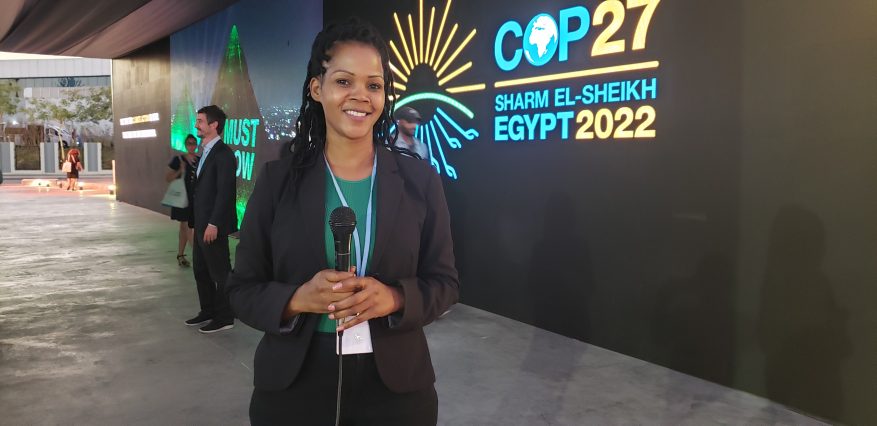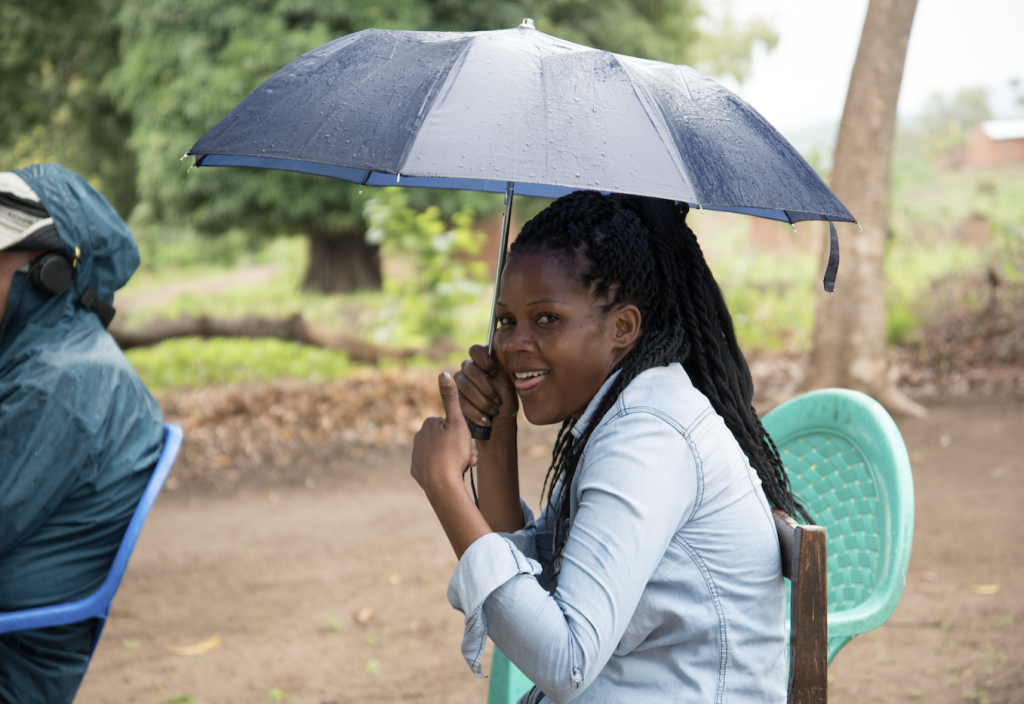I’m Tiwonge Ng’ona Kampondeni and I’m attending COP27 for Malawi, where I have been reporting in local media on the climate crisis for more than 15 years.
I come from a rural community in northern Malawi, an area that has endured both droughts and serious and destructive flooding as a result of climate change. Such extreme and often unpredictable weather, which often claims lives, has become frighteningly more frequent in Malawi in recent years despite us contributing little to climate change.
I’m proud to be part of a Malawi delegation at COP27 that includes Dr Lazarus McCarthy Chakwera, President of Malawi. My trip to COP27 has been made possible thanks to support from the UN Development Programme and the Irish Embassy in Malawi.
During the coming weeks I will be filing a series of reports for Self Help Africa from the COP27 conference. As a rural woman myself, I understand all too well how women are disproportionately affected by the climate crisis, and I’ll be highlighting and analysing progress made to promote women’s leadership and participation in meaningful climate action.
I will also be looking at the efforts by African countries to secure the climate funding needed and promised by rich countries to rebuild after accelerating climate disasters, as well as access to the finance they need to cut their own greenhouse gas emissions and cope with the impact of extreme weather that is jeopardising decades of sustainable development progress.
In Malawi, the Government is working with international actors to achieve the vision of the country’s future set out in its Vision 2063 document. With the UN Development Programme, the Government is seeking to climate-proof the policies, strategies and plans of the sectors of the economy most directly affected by climate change. The aim is to create an enabling policy and regulatory environment that empowers vulnerable communities to adapt to climate change challenges inharmony with the environment. The World Bank is providing climate financing to support that vision and help the Government reduce the impacts of climate change.
I’m familiar with the work of Self Help Africa in Malawi, where the organisation has been working with smallholder farming communities for more than 20 years. Increasingly, that work has focused on measures and methods to help farming households adapt to changing climate. Last year, Self Help Africa merged with United Purpose, which too has been working in Malawi for several decades (previously as Concern Universal), and too has adapted its programmes to address the challenge posed by global warming.
I’m looking forward to sharing my thoughts on the conversations and news from COP27, here at Sharm El Sheikh in the days ahead – so do stay tuned to Self Help Africa’s LinkedIn throughout the COP27 conference.


